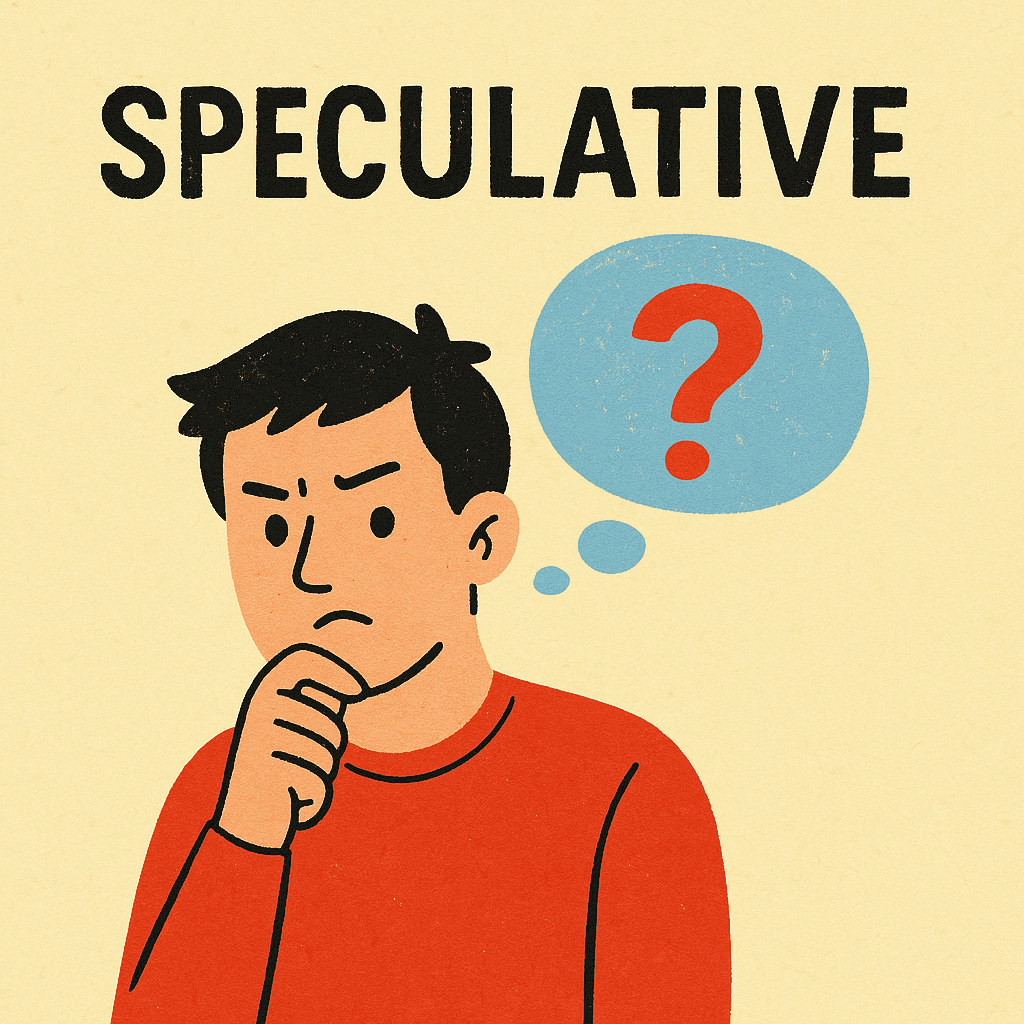Meaning
Speculative means based on guesses or theories rather than solid evidence. It describes ideas, investments, or actions that involve risk, uncertainty, or conjecture.
Grammar and Usage
-
Part of speech: Adjective
-
Meaning: Based on speculation, not facts or certainty.
-
Used for: Opinions, investments, actions, or thinking involving risk or prediction.
-
Typical patterns:
- speculative investment
- speculative fiction
- speculative remark
- speculative bubble
Common Phrases
- speculative investment — an investment with high risk and uncertain return
- speculative fiction — stories imagining the future, science fiction, or fantasy
- speculative bubble — a market situation driven by excessive speculation
- speculative remark — a statement made without full evidence
Collocations
- highly speculative
- purely speculative
- financially speculative
- speculative venture
- speculative market
- speculative reasoning
Examples
- His explanation is purely speculative and lacks solid proof.
- Investors rushed into the speculative market hoping for quick profits.
- The scientist made a speculative hypothesis about alien life.
- Many people lost money during the speculative bubble in housing.
- That’s just a speculative guess — we need more data.
- The company’s success was built on speculative ventures.
- Speculative fiction often explores alternative realities or futures.
- The article included speculative remarks about the politician’s future plans.
- The stock price rose on speculative buying.
- Don’t make speculative decisions without enough information.
Synonyms or Related
- theoretical
- hypothetical
- risky
- uncertain
- conjectural
- tentative
Antonym
- factual
- certain
- proven
- evidence-based
